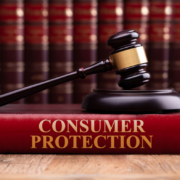Congress must protect consumers from PBM abuse
By Sally Greenberg, Chief Executive Officer
The post-election lame duck session of Congress could be one of the most influential for consumers – if our elected officials are willing to act. As Americans struggle with high prescription drug costs, insurance middlemen pharmacy benefit managers (PBMs) siphon dollars from the drug pricing system into their own pockets. Two bills sitting in Congress aim to change this by increasing transparency, ensuring PBM rebates are passed directly to consumers, and disconnecting PBM profits from the price of medicines.
S. 3973: The Pharmacy Benefit Manager Transparency and Accountability Act, would require PBMs to pass on rebates from drug manufacturers directly to consumers, ensuring they benefit from cost savings at the point of sale. It also delinks PBM profits from drug prices, eliminating the incentive to drive up costs.
S. 3430: The Prescription Drug Price Relief and Consumer Protection Act establishes stronger regulations on PBMs, ensuring transparency in drug pricing and rebate negotiations, and making sure PBMs act in the best interests of consumers.
These bills will create a much fairer system, ensuring that savings reach consumers and medications are made more affordable. Congress must advance these bills this year to protect consumers from PBM exploitation now and lay the groundwork for additional healthcare reforms next session.
Although this session – and year – is coming to a close, meaningful healthcare reforms that directly benefit consumers can start now.

















